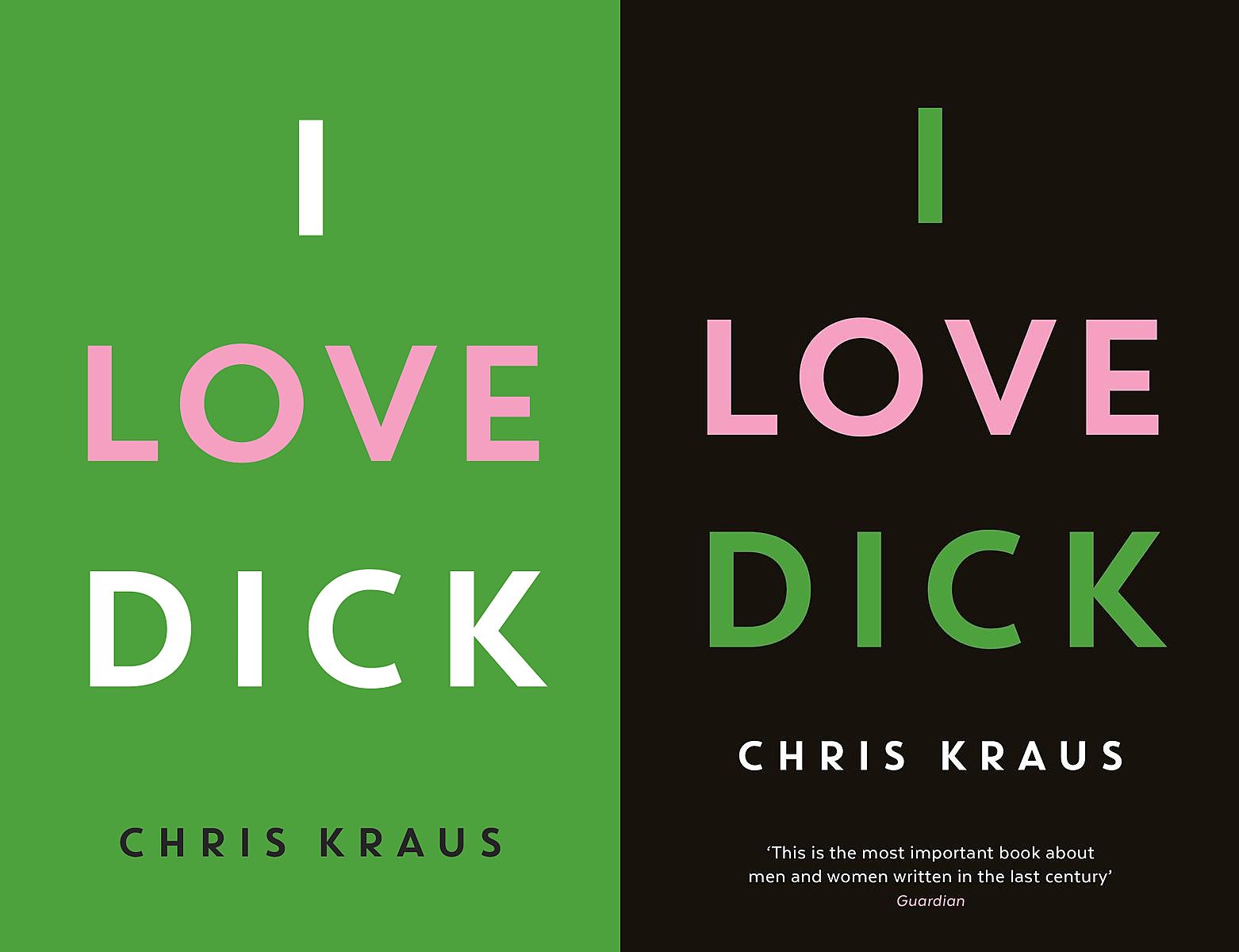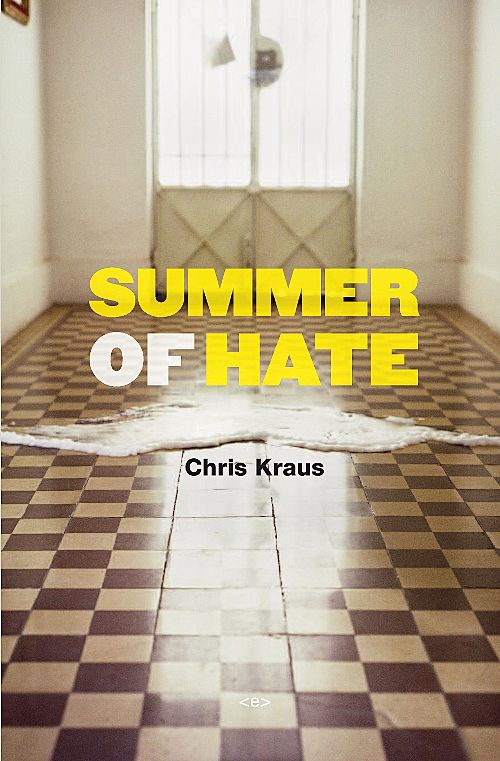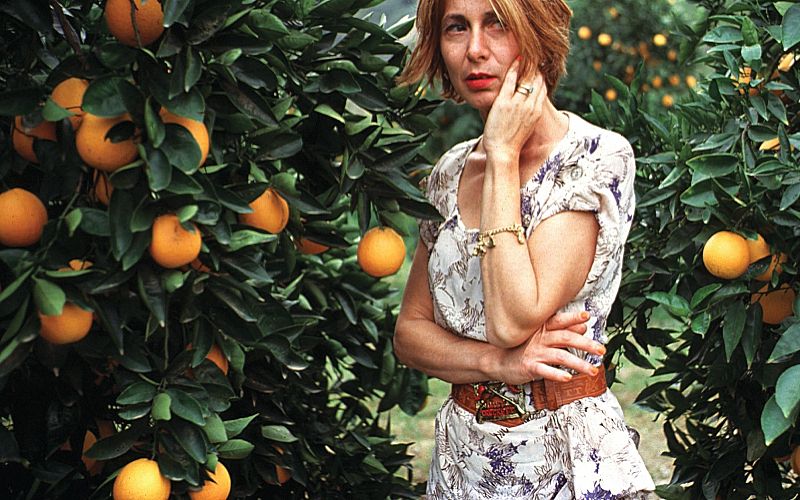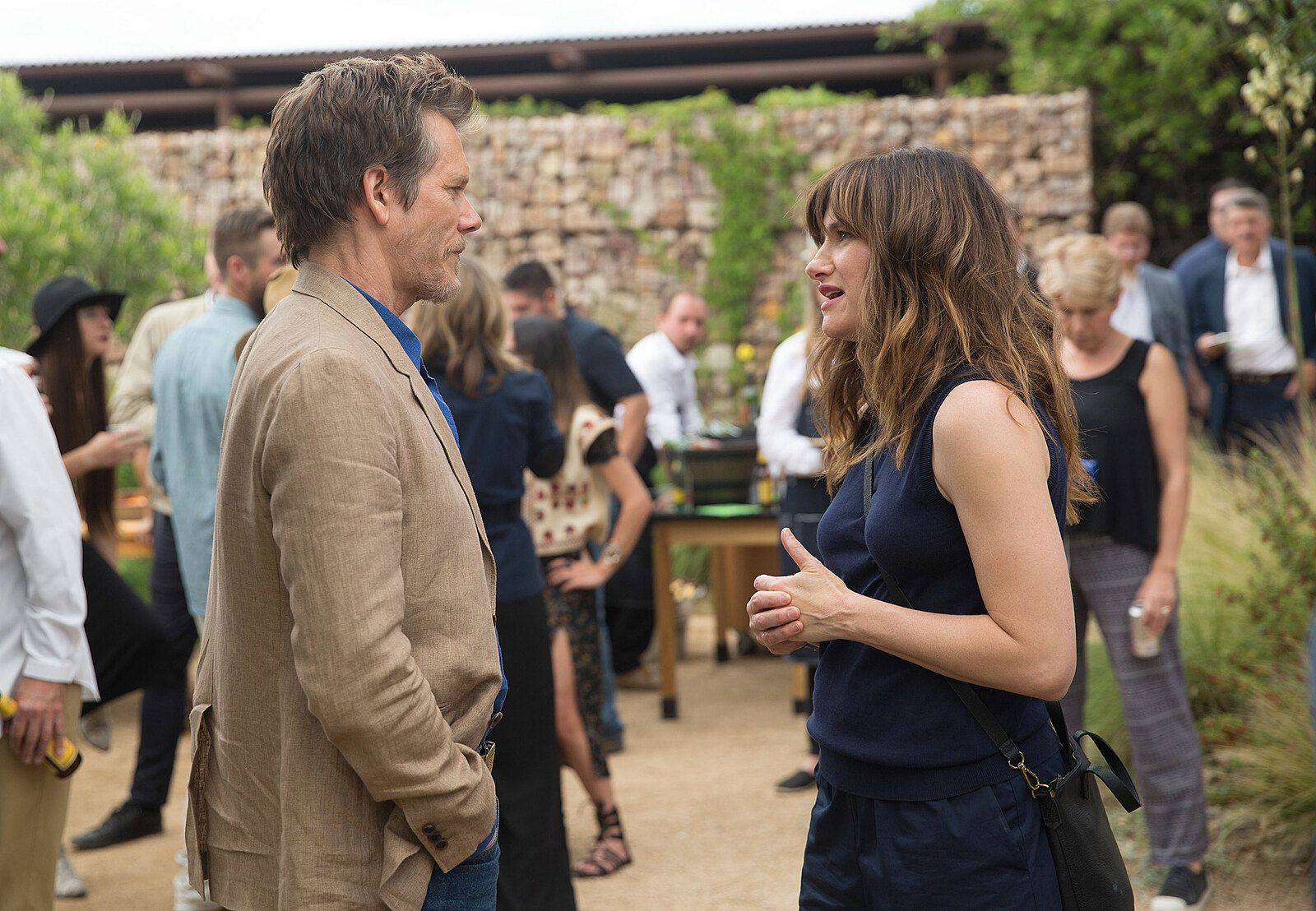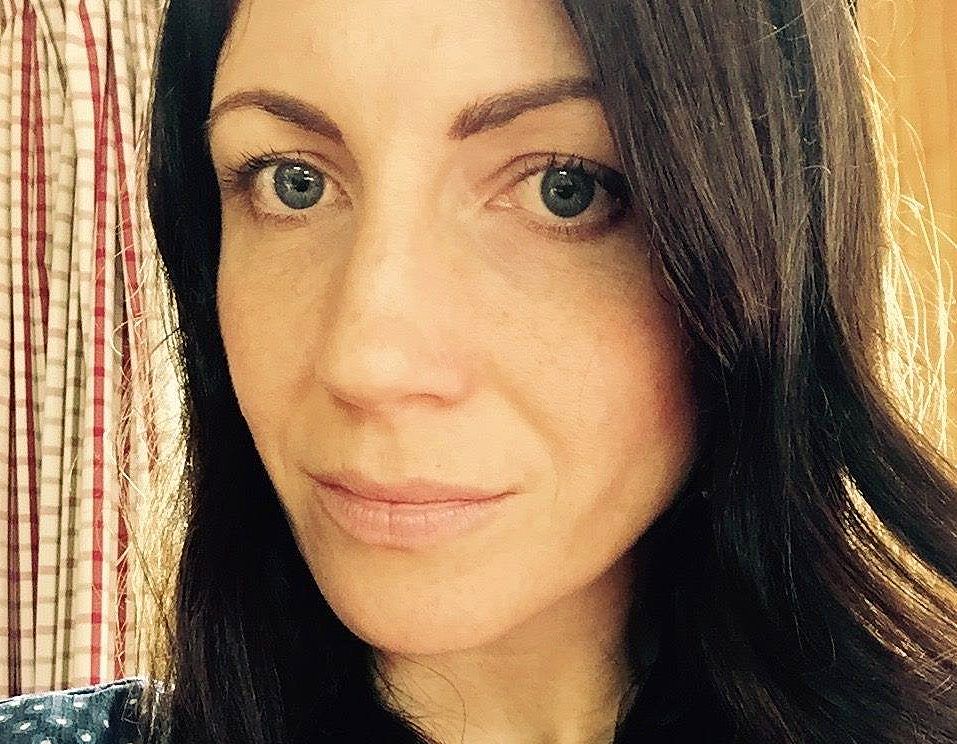Antihero of Her Own Life: A conversation with Chris Kraus
Sarah Jane Barnett talks to American writer and critic Chris Kraus about about her cult novel I Love Dick, voyeurism, and what it means to be an artist.
I Love Dick (1997) follows the story of 39-year-old filmmaker Chris Kraus. While in California, Chris and her professor husband Sylvère meet with Sylvère’s aloof colleague, Dick. Chris develops an obsessive crush on Dick, which Chris and Sylvère try to process – they start writing Dick intimate letters. While this initially reinvigorates their marriage, as the letters pile up, the crush begins to destabilise their life together.
Considered one of the most important feminist works of our time, I Love Dick deals with romantic rejection, artistic frustration, and female desire. While the novel is based on real events, Kraus’s writing refuses to fit a genre: it’s memoir, fiction, and epistolary novel in one – a form of autofiction that uses the author’s identity without claiming to be autobiography.
The space Kraus creates where author and character exist together allows the personal – the dysfunctional, vulnerable, and interior – to be used to tell a larger, important story. It's not only readers who think so: Amazon developed a TV adaptation of I Love Dick, and the first season starts streaming in May 2017.
Before Kraus's appears at the Auckland Writers Festival and at City Gallery in Wellington, I talked to her about I Love Dick, voyeurism, and what it means to be an artist.
You wrote I Love Dick in 1997, and reportedly it only sold a few hundred copies in its first year. After its re-release in 2006 the book developed a cult following. Why do you think the book became so popular the second time around? What was the most important thing you wanted to say with I Love Dick?
I wasn’t trying to say any one thing when I wrote I Love Dick – more like, I was trying to write my way out of a dilemma. The obsession and crush weren’t the point. They were a conduit. I’d been knocking around the art world for fifteen years without making much headway, but I’d observed a great deal and I realized there were a number of things I needed to talk about. The invisibility of women in the avant-garde cultural world, for sure – but other things, too – the under-the-table selection process that governs the cultural world, rural poverty, the civil wars in Central America, schizophrenia, the texture of life in New Zealand when I lived there, and left, in the 1970s. I wanted to put on the table everything that took place underneath it. Even though most of my friends were poets and writers, until then I’d never seen myself being one. But the more I wrote, the more this writing erupted.
I understand now that the novel also reads like a bildungsroman, a coming-to-consciousness. That’s certainly what has been picked up on in the TV adaptation. Women have become vastly more visible in the culture since I wrote the book. But, as [writer and director] Jill Soloway has said in some recent interviews, the presence of a realistic female character – someone conflicted, comic and flawed – is still a novelty. Progress has been made, but so long as, for example, 90% of the coverage around a series like GIRLS is critical of the bourgeois-bohemian milieu it’s set in, there’s still something wrong. Literary fiction deals almost exclusively with middle-class life, and it’s rare for a male novelist to be called out on that. Women are still held to a different standard – to be present, they have to be perfect, or else completely abhorrent – and so, less than human.
I wanted to put on the table everything that took place underneath it.
I Love Dick is comedic, self aware, and permission-giving. It's one of the best works I've read about being an artist, a woman, and dealing with failure. Chris often feels like she's not good enough, but she also celebrates and embraces her mess. She just keeps on going. What keeps you going?
I try to focus on what might be possible in the present. That was a personal breakthrough for me when I wrote I Love Dick and moved to Los Angeles. New York seemed, was, impossible – but in LA, I saw how you could break the impossible down into small, achievable goals that might not be so glamorous. To be honest, I’m somewhat conflicted about the amount of attention focused on I Love Dick now. It’s a book I wrote twenty years ago, and I’ve written six or seven others since then. But at the same time, I was appalled by the way certain second-wave feminists recanted their earlier work, and swore I’d never do that.
That's true; I Love Dick must seem like a long time ago to you. So tell us about the other work that you've done since and are particularly proud of, or want to talk about, or what you are doing at the moment that's inspiring you?
My 2012 novel Summer of Hate breaks from the artistic, intellectual world of the I Love Dick trilogy. It’s set in the South Western US during the height of the Bush years, 2005-06, and deals incarceration, addiction, and poverty on a cellular level. The protagonist, Paul Garcia, is really smart but has no information. I tried to write my way into a consciousness that has only one’s own immediate experience, and media culture, to draw from. Also, I’ve just finished a literary biography of the American writer Kathy Acker – it will come out in Australia/New Zealand from Penguin at the end of the summer.
Everyone is the antihero of his or her own life – unfortunately, not enough depictions of women reflect this.
I Love Dick is the first in a trilogy (followed by Aliens & Anorexia in 2000, and Torpor in 2006). In Torpor, though, Chris and Sylvère become Sylvie and Jerome. It only took a quick Google to find that Chris and Sylvie are the same character with different names, and that Dick is based on British academic Dick Hebdige, who has refused any involvement with the book. So while I understand the impulse to link the real and fictional worlds, commentary about your writing always tries to pin down whether or not it’s memoir or fiction, or autobiographical fiction. Readers don’t seem to come to the books as entities in themselves. Are we all voyeurs?
Yes, I think so – and I don’t know why anyone would care about that. I devoured all of Roberto Bolano’s work when it came out in translation. His character, Roberto Belano, is clearly a cipher for the author himself, and one of the things that keeps you reading is wondering just how close 'Belano' is to 'Bolano.' It’s a seduction, a very intriguing game. Fiction and art aren’t strictly autobiographical. The work I’m most drawn to treats circumstances from real life within the frame of the art work or novel. What happens within that frame is a charged and magical place; I think a novel creates its own rules, at its most successful.
Much of your work is comedic. Do you think that it’s important to hold life lightly – to laugh at our failures and successes? Is it liberating to have written an antihero in the character of Chris? It was liberating to read one.
Because my goal as a writer is to be as accurate as possible, I don’t see any other way of approaching it. Everyone is the antihero of his or her own life – unfortunately, not enough depictions of women reflect this.
Torpor, the prequel to I Love Dick, was re-released in January. The book has been called your ‘most accomplished’ work and you’ve referred to it as your most personal. Why is this book important to you?
My model for I Love Dick was a late-20th century version of an 18th century sex comedy. It’s very light! Torpor, which tells the backstory of the couple, grounded in historical trauma, and played out against the unfolding trauma of post-Soviet eastern Europe, was a lot darker. The book uses tense to enact the psychological states of the two characters. I discovered that the use of the future anterior (sentences that begin, 'It would have been') is very common among holocaust and other trauma survivors. The tense makes you want to weep as soon as you speak it – a future foreclosed by the past. I conceived Torpor much more as a conventional novel.
A vivid scene in I Love Dick is when Chris describes the art installation Minetta Lane – A Ghost Story. She thinks about all the artists who never become famous. As an artist, you’ve had times of namelessness and times of prominence. How do you navigate the times when you're less successful?
During the years when no one was much attention to my work, I became intrigued by the work and the lives of the Zurich Dadaists: Hugo Ball, Emmy Hennings, Richard Huelsenbeck, Kurt Schwitters. No one was paying attention to their work at the time, either! It was extremely local – they were exiled in Zurich during WW1, evading the draft – and the work only reached wider audiences many years later. I found this very heartening. Similarly, very little of the philosopher Simone Weil’s work was published in her short lifetime. People discovered it later. Is this still possible? I don’t know.
Recently, in my work as an art critic, I’ve sought out groups of artists in off-the-grid places like Mexicali, a border town in northern Baja. The artists associated with the space Mexicali Rose turned Mexicali into a nexus for people on both sides of the border. They were aware of international art, and certainly could have lived other places, but they chose to remain – not unlike the New Zealand modernist writers of the 1950s.
I Love Dick has been adapted for TV by Jill Soloway, the writer and director of the hit show Transparent. How does it feel to have one of your books turned into a TV show?
It’s pure pleasure watching Kathryn Hahn play this characters. She’s an astonishing actress, and her work has so much psychological nuance and depth. That alone makes it worth it.
You spent some of your teenage years in New Zealand, studied at Victoria University, and then worked here as a journalist. After that you moved back to New York to become a filmmaker and video artist. What are your best memories of New Zealand?
I still have lots of friends in New Zealand, and come back every couple of years – and I’m in touch with a lot of New Zealand expats. I love and hate the claustrophobia of New Zealand. In a small country, it isn’t impossible to trace effects to their causes. I hugely admire Nicky Hager’s investigation of the Five Eyes surveillance alliance in Secret Power, the book that inspired Simon Denny’s Venice Biennial exhibition of the same title. Hager searched and searched, and he did find the answers.
Chris Kraus will be appearing at the Auckland Writers Festival, 16-21 May 2017, and at City Gallery in Wellington, 22 May 2017.
